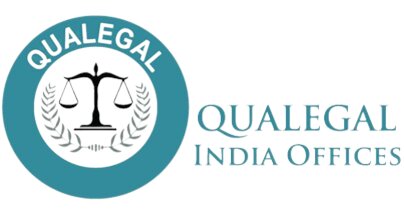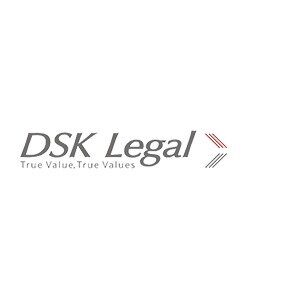Best Mining Law Lawyers in New Delhi
Share your needs with us, get contacted by law firms.
Free. Takes 2 min.
List of the best lawyers in New Delhi, India
About Mining Law in New Delhi, India
Mining Law in New Delhi, as in the rest of India, regulates the exploration, extraction, and management of mineral resources. Governed primarily by the Mines and Minerals (Development and Regulation) Act, 1957 (MMDR Act), as well as other central and state legislations, the law covers licensing, environmental compliance, land acquisition, and rights related to mining activities. Although New Delhi is an urban center with limited mining occurrence, many corporates, government entities, and regulators are headquartered here, making it important for stakeholders to understand the legal framework governing mineral sectors, permits, and dealer obligations. Legal compliance in mining involves navigating complex government permissions, regulatory issues, and sometimes, dispute resolution.
Why You May Need a Lawyer
There are a variety of situations where one might require legal assistance with Mining Law in New Delhi. Common reasons include:
- Applying for or renewing mining leases and licenses
- Ensuring compliance with environmental and safety standards
- Negotiating contracts and joint ventures related to mining operations
- Resolving land acquisition or land use disputes
- Responding to government notices, penalties, or litigation related to violations
- Advising on the transfer or assignment of mining rights
- Guiding foreign investors through regulatory requirements for mining in India
- Representing clients in disputes before regulatory authorities or courts
- Assisting with closure plans and rehabilitation obligations
Local Laws Overview
Mining activities in New Delhi are primarily governed by central legislation, as it is a union territory with limited direct mining operations. However, the city serves as the headquarters for various regulating ministries and agencies. Key legal aspects include:
- Mines and Minerals (Development and Regulation) Act, 1957: Sets out the framework for granting mineral concessions, roles of the central and state governments, and penalties for violations.
- Mineral Concession Rules, 1960 and Mineral Conservation and Development Rules, 2017: Detail procedures and compliance requirements.
- Environmental Laws: Activities must adhere to statutes like the Environment (Protection) Act, 1986, and obtain environmental clearances.
- Mines Act, 1952 and related rules: Focuses on the welfare, health, and safety of mine workers.
- Other Regulations: Activities impacting forests or wildlife must comply with the Forest Conservation Act, 1980 and Wildlife Protection Act, 1972.
Urban mining activities or business dealings with mining companies are also governed by various business and commercial laws, including contract law, taxation, and labor regulations.
Frequently Asked Questions
What is the primary law governing mining in India?
The main law is the Mines and Minerals (Development and Regulation) Act, 1957, commonly known as the MMDR Act. It regulates all aspects from issuance of mining leases to penalties for illegal mining.
Do I need a license to carry out mining activities in New Delhi?
While New Delhi is not a mining hub, any mining or dealing in minerals requires appropriate licensing under the MMDR Act and related rules.
Who grants mining leases in India?
Leases and licenses are generally granted by state governments, but central approval may be required for certain minerals and for areas such as New Delhi, which is a union territory.
What are the environmental compliance requirements for mining?
All mining projects must obtain environmental clearance from the Ministry of Environment, Forest and Climate Change, and comply with multiple environmental laws and guidelines.
How can I challenge a mining license decision?
You may approach higher authorities, statutory tribunals such as the National Green Tribunal, or the courts, depending on the nature of the dispute.
What is the process for transfer of a mining lease?
Transfers require approval from the regulating government department and must comply with the MMDR Act and related mining concession rules.
Are there special rules for foreign companies interested in Indian mining?
Yes, foreign direct investment is regulated and certain mineral sectors may have restrictions or require special permission from the central government.
What are the penalties for illegal mining?
Penalties can include heavy fines, imprisonment, and confiscation of equipment and minerals. The authorities can also prohibit future mining rights.
Is it possible to seek compensation for environmental damage due to mining?
Yes, affected parties can pursue compensation through civil claims or environmental tribunals if they can prove unlawful conduct or negligence by mining operators.
Where can I report illegal mining or related activities?
Complaints can be filed with the Ministry of Mines, local law enforcement, or specific regulatory bodies such as the Indian Bureau of Mines.
Additional Resources
- Ministry of Mines, Government of India - the nodal agency for mining law and policy formulation
- Ministry of Environment, Forest and Climate Change - for environmental regulations and clearances
- Indian Bureau of Mines - regulatory agency overseeing mining activities and safety
- Directorate General of Mines Safety - responsible for mine safety and worker welfare
- Federation of Indian Mineral Industries - industry body with updates and guidelines
- Bar Council of Delhi - for locating qualified mining law advocates
Next Steps
If you need legal guidance in the field of mining law in New Delhi, consider the following approach:
- Gather all documents related to your mining concern, including leases, contracts, and notices.
- List your specific legal questions or issues to prioritize your concerns.
- Consult with a qualified legal professional experienced in mining law and regulatory matters.
- Contact relevant governmental departments for procedural or application-related doubts.
- If required, participate in alternative dispute resolution before resorting to litigation.
- Stay updated on new mining regulations and policy notifications which may affect your rights or obligations.
Seeking timely advice from a legal expert and remaining proactive about compliance will help you efficiently navigate the complexities of mining law in New Delhi.
Lawzana helps you find the best lawyers and law firms in New Delhi through a curated and pre-screened list of qualified legal professionals. Our platform offers rankings and detailed profiles of attorneys and law firms, allowing you to compare based on practice areas, including Mining Law, experience, and client feedback.
Each profile includes a description of the firm's areas of practice, client reviews, team members and partners, year of establishment, spoken languages, office locations, contact information, social media presence, and any published articles or resources. Most firms on our platform speak English and are experienced in both local and international legal matters.
Get a quote from top-rated law firms in New Delhi, India — quickly, securely, and without unnecessary hassle.
Disclaimer:
The information provided on this page is for general informational purposes only and does not constitute legal advice. While we strive to ensure the accuracy and relevance of the content, legal information may change over time, and interpretations of the law can vary. You should always consult with a qualified legal professional for advice specific to your situation.
We disclaim all liability for actions taken or not taken based on the content of this page. If you believe any information is incorrect or outdated, please contact us, and we will review and update it where appropriate.

















